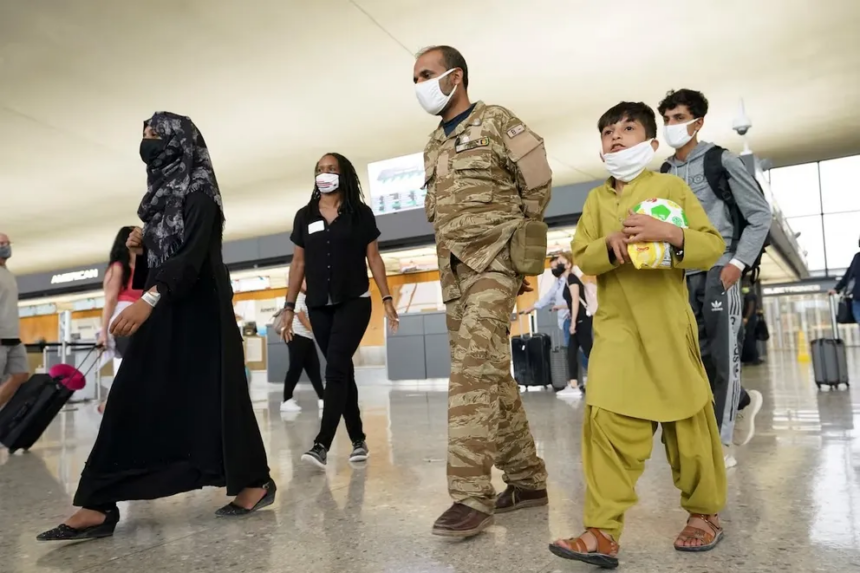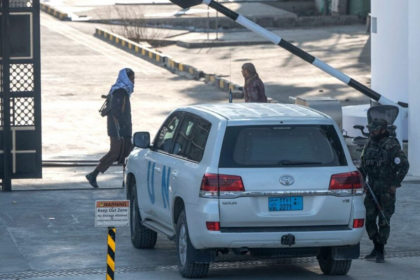RASC News Agency: In a powerful bipartisan appeal, U.S. Representatives Zach Nunn and Jason Crow have called on Congress and the State Department to approve an additional 20,000 Special Immigrant Visas (SIVs) for Afghanistani nationals who supported the American mission in Afghanistan. The formal request, submitted in a letter addressed to the Speaker of the House, members of the Homeland Security Committee, and senior officials at the State Department, urges the inclusion of these visas in the Fiscal Year 2026 appropriations bill. The letter highlights the critical role played by thousands of Afghanistani interpreters, advisors, engineers, and logistical personnel who served alongside U.S. forces during two decades of military operations. Many of these individuals, the letter stresses, risked their lives and the safety of their families to advance America’s strategic objectives in Afghanistan including its stated mission of promoting democracy, human rights, and counterterrorism. Today, those same individuals are being hunted by the Taliban regime, which has embarked on a systematic campaign of vengeance against anyone associated with the former U.S.-backed government.
“Securing the safety of our wartime allies is not simply a gesture of goodwill it is a strategic and moral imperative,” the letter states. “These individuals upheld American values and supported U.S. personnel in times of war. Failing to protect them now would be a betrayal of our principles and a stain on our global reputation.” Since the fall of Kabul in August 2021, the Taliban’s resurgence has plunged Afghanistan into a humanitarian and human rights catastrophe. The regime has intensified its oppression, particularly against former civil servants, journalists, ethnic minorities, and those linked to the United States. Women and girls have been systematically erased from public life, and the Taliban has repeatedly violated international humanitarian law with impunity.
In this climate of terror, thousands of eligible SIV applicants remain stranded some in hiding within Afghanistan, others trapped in neighboring countries with little protection or support. The SIV process, though essential, is notoriously slow and bureaucratic, often requiring years of security screenings, biometric data collection, and interviews. Many applicants have already lost family members to Taliban violence while waiting for approval. The SIV program was originally created in 2009 as a mechanism to protect those whose loyalty to the United States placed them at grave personal risk. While the program has received consistent bipartisan support and has undergone several expansions, it remains insufficient in its current form to meet the scale of the crisis unfolding in Taliban-ruled Afghanistan.
Nunn and Crow, both military veterans, emphasized that expanding the visa quota is both feasible and urgent. They noted that failure to act would not only jeopardize lives but also send a chilling message to future U.S. allies around the world that American promises are expendable. In parallel, Afghanistani refugee advocacy groups have mobilized pressure on lawmakers across party lines, urging them to co-sign the letter and endorse the 20,000-visa expansion. These organizations argue that the United States bears a direct responsibility for the fate of those who aided its mission, and that additional visas must be accompanied by increased resources for resettlement and integration.
“The Taliban’s return has turned Afghanistan into a prison of fear, particularly for those who once dared to believe in freedom and dignity,” said an exiled former U.S. contractor who fled to a neighboring country after receiving death threats. “If the United States abandons us now, it abandons its own values.” This latest legislative push reflects mounting pressure on the Biden administration to repair the damage caused by the hasty 2021 withdrawal, which left thousands of U.S. allies behind under Taliban rule. As the Taliban continues to expand its oppressive grip banning music, jailing women, targeting ethnic minorities, and executing former security personnel international concern is growing that Afghanistan under Taliban rule has become a failed state governed by fear and medieval authoritarianism.
Ultimately, lawmakers and advocates agree: to restore trust and safeguard lives, the United States must act decisively not merely with statements, but with meaningful policies and lifesaving actions.






